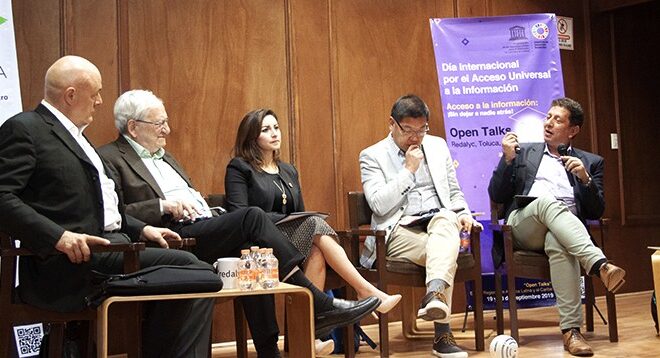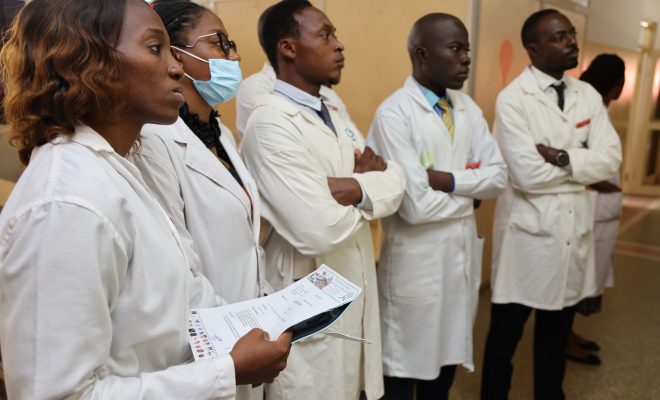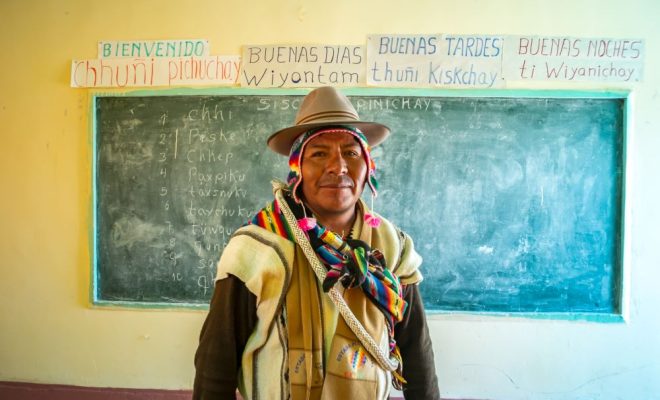Insights from the South-South University Cooperation Network Workshop: Tackling challenges in higher education

On September 5, and as part of the ongoing activities of the South-South University Cooperation Network (SUCN) – a joint initiative by UNESCO IESALC and United Nations Office for South-South Cooperation (UNOSSC) – UNESCO IESALC held a dynamic workshop at the International Conference & POP (Protect Our Planet) Festival for Youth-Led Climate Action 2024 in Oaxaca, Mexico.
The SUCN aims to engage different universities, students and partners from the global south using South-South and Triangular Cooperation (SSTC). SSTC is a collaborative process that involves governments, regional organizations, civil society, academia, and the private sector working together, sharing knowledge, skills, and resources to achieve the Sustainable Development Goals (SDGs). SUCN is being implemented with the UN Office for South-South Cooperation, which acts as a global advocate and facilitator for South-South and Triangular Cooperation.
The event brought together faculty members from various universities across Oaxaca and divided them into four focus groups to address key functions of higher education: teaching and learning, research, community engagement, and management. Faculty members brainstormed together and exchanged knowledge and expertise to discuss challenges and generate potential solutions.
Here is a look at the insights and solutions that emerged from each group:
Research: Bridging the resource gap
Effective research is all about leveraging both biological and technological resources, but many researchers struggle with limited access to ongoing professional development. To overcome these obstacles, there is an urgent need for enhanced national and international collaboration.
This means advocating for policy changes that make resources more accessible and exploring technological solutions to minimize the need for travel. Building strong, reciprocal partnerships between communities and institutions can also help, especially when it comes to accessing expensive research equipment. Starting with targeted training programs can boost institutional capacity and encourage a spirit of cross-border collaboration.
Community Engagement: making research matter locally
One of the biggest challenges is the disconnect between research activities and their impact on local communities. To bridge this gap, there is a need to get creative about how we share our findings. Social media can be a powerful tool to make research more engaging and accessible. Hosting dedicated conferences can also help translate research into local benefits, although they need ongoing support to be effective. In addition, expanding opportunities for women in knowledge production and creating up new platforms for research dissemination are crucial steps in toward research outcomes more impactful and inclusive.
Teaching and learning: Closing the digital divide
The digital divide remains a significant barrier in education. To address this, it is essential to foster national collaborations aimed at improving access to digital education and technology. Embracing an open science approach and conducting language use assessments can help identify and address gaps. For instance, in Oaxaca, where access to digital learning is closely tied to English proficiency, many students face challenges. By increasing access to digital tools and resources, we can work towards more equitable educational opportunities.
Management and administration: Strengthening small producers
Connecting with small producers is no small feat, especially since over 80% of businesses in Oaxaca are micro, family-owned enterprises. Building a robust supply chain involves linking these businesses and forming small collectives. Providing guidance on how to lead these initiatives is key, especially since many small businesses are environmentally conscious and focused on addressing migration issues. Universities can play a significant role by offering training programs and helping individual producers gain recognition and certifications. For this to work, however, it is necessary to ensure that financial resources, funding, and capacity-building efforts are in place to support these endeavors effectively.
The workshop in Oaxaca was a vibrant platform for discussing these crucial areas of higher education and finding collaborative solutions. By addressing these challenges with focused strategies, we can make considerable progress in improving research, community engagement, teaching, learning, management, and administration.
RELATED ITEMS







